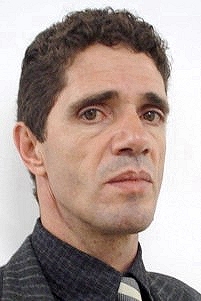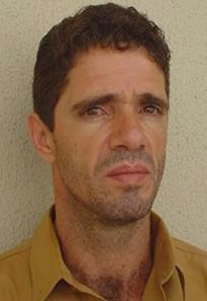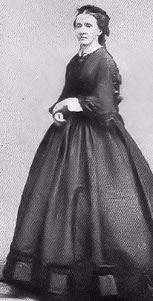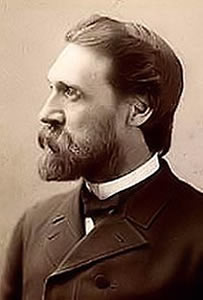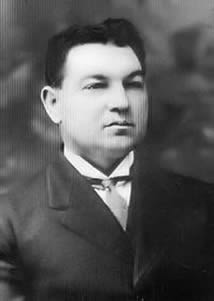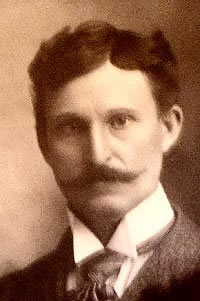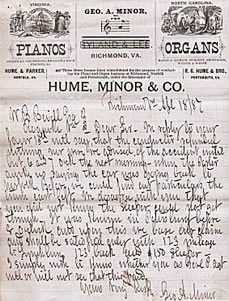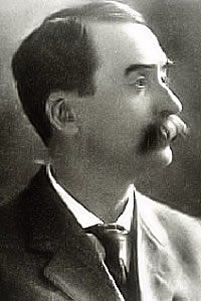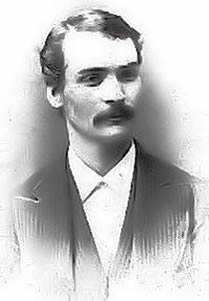O Bebê de Belém
“The Baby of Bethlehem”
Letra & Música: “The Baby of Bethlehem”, Ralph Patrick Merrifield, 2002; traduzido do Inglês para o Português por Daniel Borges, 2004. [ ![]() —
— ![]() —
— ![]() ].
].
→ “The Baby of Bethlehem” © 2002 Ralph Merrifield New Hope Music, PO Box 1612, Westboro, MA 01581. Duplication allowed and encouraged for all free distribution.
→ “The Baby of Bethlehem” © 2002 Ralph Merrifield New Hope Music, PO Box 1612, Westboro, MA 01581. Duplicação permitida e incentivada sua distribuição gratuita.
[ See in Cyberhymnal also see in English The Baby of Bethlehem ]
Não Vivo Sozinho O Deus de Santidade e Amor
Não Vivo Sozinho
“I don’t Live Alone”
Letra: “I don’t Live Alone”, Daniel Borges, 2005.
Música: “St. Denio”, Welsh melody; from Canaidau y Cyssegr by John Roberts [Ieuan Gwyllt], 1839. [ ![]() —
— ![]() —
— ![]() ].
].
→ John Roberts was the son of Aaron and Jane Roberts. He is often confused with another Welsh musician of the same name, John Roberts, (1822–1877) Ieuan Gwyllt was the bardic name of Welsh musician and minister John Roberts. His bardic name is derived from the nom de plume [a pen name = is a pseudonym] he used whilst writing poetry as a boy, Ieuan Gwyllt Gelltydd Melindwr (John of the Wild Woods near the Mill Tower).
→ John Roberts era filho de Aaron e Jane Roberts. Ele é freqüentemente confundido com outro músico galês de mesmo nome, John Roberts, (1822–1877) Ieuan Gwyllt era o nome bárdico do músico e ministro galês John Roberts. Seu nome bárdico é derivado do nome de caneta [um pseudônimo] que ele usou enquanto escrevia poesia quando era menino, Ieuan Gwyllt Gelltydd Melindwr [João dos Bosques Selvagens perto da Torre do Moinho].
Marchando Vem Jesus O Bebê de Belém
Marchando Vem Jesus
“The Battle Hymn of the Republic”
Letra: Julia Ward Howe, 1861; traduzido do Inglês para o Português por Daniel Borges, 2004.
Música: “John Brown’s Body, [o Corpo de John Brown]”; que é de um antigo hino Metodista, possivelmente escrito por John William Steffe no 19º Século. O acampamento americano conhecia a melodia. [ ![]() —
— ![]() —
— ![]() ].
].
→ Este hino nasceu durante a guerra civil americana, quando Julia Ward Howe, e seu marido visitaram um acampamento de Exército da União no Rio Potomac perto de Washington-DC, em dezembro de 1861. Ela ouviu os soldados cantarem a canção “John Brown’s Body [O Corpo de John Brown]” e foi levada pelo forte batida de marcha. Ela escreveu as palavras no dia seguinte:
“Eu despertei numa manhã cinzenta e, enquanto esperava o amanhecer… os longos versos do poema desejado começaram a se entrelaçar em minha mente e eu disse a mim mesma: “eu tenho que me levantar e escrever estes versos para não cair no sono e os esqueça!” Então eu pulei da cama e na penumbra encontrei um velho toco de lápis que eu me lembrava de ter usado no dia anterior. Eu praticamente rabisquei os versos sem olhar para o papel.”
→ John Brown era um abolicionista americano que levou uma curta insurreição vivida para livrar os escravos.
→ O hino foi publicado no Atlantic Monthly em fevereiro de 1862. Foi cantado nos funerais do estadista britânico Winston Churchill, do senador americano Robert Kennedy e dos presidentes americanos Ronald Reagan e Richard Nixon.
[ See in Cyberhymnal and also in English The Battle Hymn of the Republic ]
Marchando em Retidão Não Vivo Sozinho
Marchando em Retidão
“From Age To Age They Gather”
Letra: “From Age to Age They Gather“; Frederick Lucian Hosmer, 1912.
Música: “John Brown’s Body, [o Corpo de John Brown]”; que é de um antigo hino Metodista, possivelmente escrito por John William Steffe no 19º Século. O acampamento americano conhecia a melodia. [ ![]() —
— ![]() —
— ![]() ].
].
→ John Brown era um abolicionista americano que levou uma curta insurreição vivida para livrar os escravos.
[ See in Cyberhymnal and also in English From Age to Age They Gather ]
Love Lifted Me Marchando Vem Jesus
Love Lifted Me
“Jesus me Transformou”
Words: James Rowe, 1912.
Music: Howard E. Smith (1863-1918). Rowe & Smith wrote this song in Saugatuck (now part of Westport), Connecticut. [ ![]() —
— ![]() —
— ![]() ].
].
→ James was Son of John Rowe, a copper miner, James worked for the Irish government for four years, then emigrated to America at age 24. He settled in Albany, New York, and worked in railroads in New York for 10 years.
He then became an inspector for the Hudson River Humane Society. He then worked for music publishers in Texas and Tennessee, and in his later years, moved to Vermont and worked with his daughter, an artist, writing verses for greeting cards. Rowe and Smith wrote this song in Saugatuck, Connecticut. According to Rowe’s daughter. Smith was a church organist in Connecticut.
→ James era filho de John Rowe. Trabalhou numa mina de cobre para o governo irlandês durante quatro anos, depois emigrou para a América aos 24 anos de idade. Instalou-se em Albany, Nova Iorque, e trabalhou na ferrovia em Nova Iorque durante 10 anos. Se tornou um inspetor pela Sociedade Humanitária Rio Hudson.
Depois disso trabalhou em editoras de música no Texas e Tennessee. Mudou-se então para Vermont e trabalhou com sua filha, um artista, escrevendo versos em cartões de visita. De acordo com a filha, Rowe e Smith escreveram esta canção em Saugatuck, Connecticut. Smith era um organista da igreja em Connecticut.
[ Translation by Ginsburg and also Literal translation by Borges see also in Cyberhymnal ]
Lançar a Semente Marchando em Retidão
Lançar a Semente
“Throw the Seed”
Letra: “Lançar a Semente”, Daniel Borges, 2005.
Música: Geoge Austin Minor, 1880. [ ![]() —
— ![]() —
— ![]() ].
].
→ Borges escreveu estas letras, mas a melodia de George Austin Minor é universalmente usada até os dias de hoje. Minor ajudou a fundar a Hume-Minor Company, que fazia pianos e órgãos.
→ Borges wrote these lyrics, but George Austin Minor’s tune is universally used today. Minor helped found the Hume-Minor Company, which made pianos and organs.
[ See also Cyberhymnal ]
Jesus Vem Convidar Love Lifted Me
Jesus Vem Convidar
“The Call of The Christ”
Letra: Daniel Borges, 2005.
Música: Charles Hutchinson Gabriel, (1856-1932). Many of which are available in 21st century hymnals. He used several pseudonyms and some hymnals we will see Gabriel’s pseudonyms as Charlotte G. Homer, H. A. Henry, and S. B. Jackson. [ ![]() —
— ![]() —
— ![]() ].
].
→ James era filho de John Rowe. Trabalhou numa mina de cobre para o governo irlandês durante quatro anos, depois emigrou para a América aos 24 anos de idade. Instalou-se em Albany, Nova Iorque, e trabalhou na ferrovia em Nova Iorque durante 10 anos. Se tornou um inspetor pela Sociedade Humanitária Rio Hudson.
Depois disso trabalhou em editoras de música no Texas e Tennessee. Mudou-se então para Vermont e trabalhou com sua filha, um artista, escrevendo versos em cartões de visita. De acordo com a filha, Rowe e Smith escreveram esta canção em Saugatuck, Connecticut. Smith era um organista da igreja em Connecticut.
→ James was Son of John Rowe, a copper miner, James worked for the Irish government for four years, then emigrated to America at age 24. He settled in Albany, New York, and worked in railroads in New York for 10 years.
He then became an inspector for the Hudson River Humane Society. He then worked for music publishers in Texas and Tennessee, and in his later years, moved to Vermont and worked with his daughter, an artist, writing verses for greeting cards. Rowe and Smith wrote this song in Saugatuck, Connecticut. According to Rowe’s daughter. Smith was a church organist in Connecticut.
Jesus me Transformou – Borges
“Love Lifted Me”
Daniel Borges – Tradução Literal
Letra: “Love Lifted me”, James Rowe, 1912. Tradução – não convencional – literal por Daniel Borges, 2010.
Música: Howard E. Smith, (1863-1918). [ ![]() —
— ![]() —
— ![]() ].
].
→ James era filho de John Rowe. Trabalhou numa mina de cobre para o governo irlandês durante quatro anos, depois emigrou para a América aos 24 anos de idade. Instalou-se em Albany, Nova Iorque, e trabalhou na ferrovia em Nova Iorque durante 10 anos. Se tornou um inspetor pela Sociedade Humanitária Rio Hudson.
Depois disso trabalhou em editoras de música no Texas e Tennessee. Mudou-se então para Vermont e trabalhou com sua filha, um artista, escrevendo versos em cartões de visita. De acordo com a filha, Rowe e Smith escreveram esta canção em Saugatuck, Connecticut. Smith era um organista da igreja em Connecticut.
→ James was Son of John Rowe, a copper miner, James worked for the Irish government for four years, then emigrated to America at age 24. He settled in Albany, New York, and worked in railroads in New York for 10 years.
He then became an inspector for the Hudson River Humane Society. He then worked for music publishers in Texas and Tennessee, and in his later years, moved to Vermont and worked with his daughter, an artist, writing verses for greeting cards. Rowe and Smith wrote this song in Saugatuck, Connecticut. According to Rowe’s daughter. Smith was a church organist in Connecticut.
[ See in English Love Lifted Me and also translation by Ginsburg see also Cyberhymnal ]
Jesus me Transformou – Ginsburg Jesus Vem Convidar


